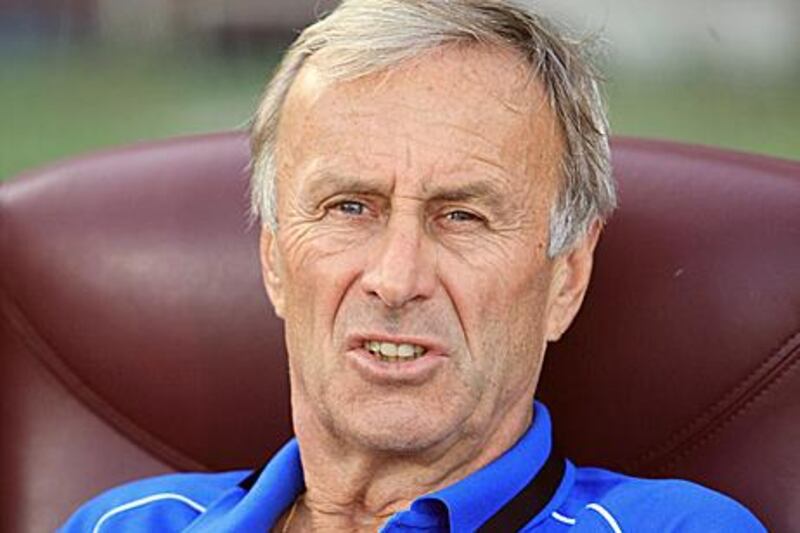ABU DHABI // It was the German historian Clausewitz who said that "plans do not survive the first contact with the enemy". Not that football coaches ever have been deterred by the truism; they are sure to seek as much information as possible on their next opponent so that they can plot ways of attacking and defeating him.
Imagine their frustration, then, at the Club World Cup, an event which brings together some of the world's best-known sides but also some of its most exotic.
The fog of sporting war hangs heavy, for instance, over Hekari United of Papua New Guinea and Al Wahda of the UAE, separated by 10,600km and seven time zones yet scheduled for an 8pm collision tomorrow in the first match of the Fifa-sponsored tournament in Abu Dhabi. Or TP Mazembe of Africa and Pachuca of Mexico, 14,200km and seven times zones apart but matched at 8pm on Friday.
What these clubs did not know about each other a month ago was near absolute, a condition only slightly ameliorated since.
"It has been very hard to find out about Al Wahda, how they play," Tommy Mana, Hekari's assistant coach, said yesterday. "We still find it difficult to get good information about them."
Josef Hickersberger, coach of Wahda, faced similar problems learning about Hekari. "I can understand [Mana's] answer because for me it is very difficult, too."
Hickersberger ultimately went directly to the source, travelling 19 hours, in each direction, last month to Port Moresby in Papua New Guinea to see Hekari play a league match.
"It was a long trip from Abu Dhabi to Sydney to Port Moresby and back via Manila," he said. "I spent almost two days for 90 minutes, and I didn't see the first five minutes of the match."
Mana later elaborated on Hekari's frustration in learning about Wahda. He said the club never obtained video of a full Wahda game and had been limited to watching snippets of play on YouTube.
Travelling to see Wahda in person was out of the question because of the club's limited financial resources.
Asked about which Wahda players have impressed him, Mana offered No 10 (Ismail Matar) and No 80 (Hugo). But the information gap persists, he conceded; he later asked a reporter what formation the Abu Dhabi club prefer.
Lamine Ndiaye, the coach of TP Mazembe, was a font of non-specific generalities when asked about Pachuca, stressing the competence of the North American side and his respect for them.
However, he could not or would not identify a Pachuca player who impressed him, and the coaching fraternity no doubt feels his pain; it is hard to imagine that Mexican league matches are often televised in sub-Saharan Africa. But Ndiaye did promise that his team would be ready.
Seongnam Ilhwa Chunma of South Korea no doubt will lean heavily on direct observation of the Wahda-Hekari game because they face the winner on Saturday.
Seeing a team in person is key, Hickersberger said. "I got a good impression of Hekari United from watching them," he said. "They are well-organised and they won 4-0 over Koloale. At least I have an idea about the team."
He no doubt would prefer more information. It seems universal, this desire to formulate plans that do not survive kick-off.





